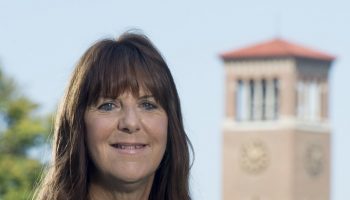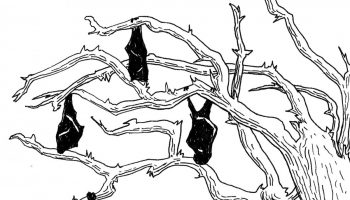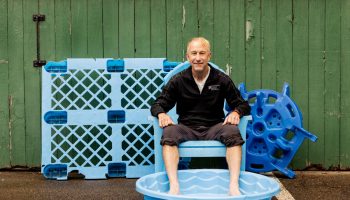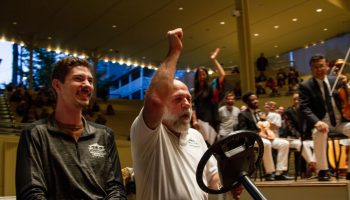Rarely has a passing philosopher held his tongue. He pesters the human conscience. Jason Robert — who is the Lincoln Chair in Ethics, director of the Lincoln Center for Applied Ethics, as well as Franca Oreffice Dean’s Distinguished Professor in the Life Sciences at Arizona State University — has taken to tapering his subject of irritation.
He chose scientists.
At 12:15 p.m. Monday in the Hall of Philosophy, Chautauquans will be able to listen to the aspiring Übermensch as he delivers the second lecture in the summer’s Lincoln Applied Ethics series.
“I’m a philosopher who wants to talk to scientists,” Robert said. “I’m encouraged to spend time with them.”
ASU is one of the few academic institutions in North America that appoints philosophers, historians and ethicists to the science units. That relationship allows for scientists, who may be bogged down in ethical dilemmas, to reach over the fence and ask their questions. One of those neighboring yards of information is Robert, a man accustomed to pragmatic thought.
“For me, what matters is making a difference in the world and trying for that difference to be a good, positive change, rather than any of the other options,” Robert said. “I’m also grounded in a real sense of civic duty.”
Robert said his role can be a bit like that of a watchdog, or a broker between different stakeholders. His job, he said, is doing what he can to help ensure that ASU is running an ethically conscientious university and conducting ethically appropriate research. A large amount of that attention is targeted at managing the growing sense of skepticism surrounding the scientific field.
One of the controversies Robert discussed was translational research, taking results found at the bench straight to the bedside, applying them at great speeds without appropriate safeguards, thereby inviting the potential for serious harm.
“Right now, science is both terrifically powerful and also terrifically suspect,” Robert said. “There’s a lot of people, Democrats, Republicans, Independents and others, who are concerned that science is moving forward without sufficient attention from regulators. And I think that we don’t do the best justified science that we can do. We do the science that we can do.”
Robert talked of applying a more holistic point of view, a collaborative approach where institutions are also publishing the negative results of research, to help scientists from wasting their time replicating already failed experiments. A first step in that direction, Robert said, is advocating scientists of character who are honest and transparent.
David Lincoln, benefactor and patron of the Lincoln Center for Applied Ethics and Chautauqua Institution, has firmly believed that good business is ethical business. Robert plans to discuss the difficulty of the present reward structure, which praises productivity over character. He counters the antiquated structure, demonstrating that a mission-driven corporation founded on ethical values creates a much stronger work force.
One method Robert uses with his students in approaching complex ethical concepts is not philosophical manifestos, but rather fiction and creative nonfiction. Recently, Robert assigned a collection of short stories written by a physician-scholar. In particular, his students read a story from the perspective of a laboratory rat.
“My goal is to get them focused less on the protocol, the details of the protocol which is what they’re really doing all the time, and to focus also on what the protocol means, or why they’re doing this thing rather than that thing,” Robert said. “I think that using a different medium will actually bring out and enhance their creative insight, and enhance their moral imagination.”
Chief among his objectives, Robert said, is helping his student-scientists understand themselves and become better human citizens.
“It’s about this constant self-improvement,” Robert said. “We think of ourselves as fully complete persons. This can apply to any stage in life. We’re independent, we can vote, we’re out there in the world. But I think of that as who we merely are. What I’d like to see is people begin to commit to who they really want to be in the world.”
It’s a question Robert himself explores.
“I worry about this. I have a lot of identity crises,” he said. “I consider myself first and foremost as an ethicist and sort of as a gadfly, in the old Socratic vain, constantly irritating in the most gentle way possible, or worrying — to use an ancient term — worrying what’s around me, causing a little bit of uproar, causing a little bit of discomfort. So I guess that is a description of a philosopher, but it’s not the mantle that I’ve chosen.”






